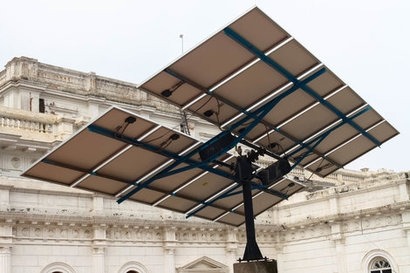
The new solar energy maps were unveiled yesterday (8th March 2017) at a workshop hosted by AEDB and the World Bank in Islamabad, which was attended by a cross section of stakeholders. In addition to presenting and discussing the new maps, participants learned about the ground-based measurement campaign, and discussed various options for continued operation of the nine solar measurement stations installed at diverse locations in Pakistan.
The maps will help Pakistan to expand access to sustainable and affordable sources of indigenous energy in the country. They also enable Pakistan to become the first country to benefit from validated solar maps under a global initiative on renewable energy resource mapping led by the Energy Sector Management Assistance Programme (ESMAP), a multi-donor trust fund administered by the World Bank.
The introduction of the maps means that Pakistan can now join a small group of mainly developed countries, having access to duly validated and high quality solar energy maps available for planning and prospecting purposes. This initiative will facilitate investors in making more informed project decisions.
The World Bank project on solar mapping in Pakistan included field data, which is being generated by nine solar measurement stations installed two years ago throughout the country. The project supports AEDB’s efforts to harness renewable energy in all the provinces by improving access to bankable data. The solar maps used the latest solar resource modelling techniques, based on 18 years of satellite and global atmospheric data from 1999-2016.
“These new solar maps will definitely ensure qualified improvement vis-a-vis previous studies, and will underscore the tremendous solar potential that exists across Pakistan” said Amjad Ali Awan, Chief Executive Officer of AEDB. “For this very effort, I would like to congratulate the World Bank for their valuable contribution to our continued efforts towards scaling up of renewable energy in an affordable and sustainable manner in the country.”
Anthony Cholst, Acting Country Director for the World Bank, Pakistan, added that with the costs of solar having decreased significantly over the past couple of years, Pakistan now has the opportunity to unleash investment in solar energy without the need for subsidies. The World Bank is ready and willing to support the federal and provincial governments in the country to achieve this objective, alongside the support it is already providing for development of hydropower, sector reform and the strengthening of the transmission grid.
The solar maps, and the underlying solar data, can be accessed for free via the Global Solar Atlas, a recently-launched tool provided by the World Bank Group and covering all countries. In addition, the maps are available in digital format for use in Geographic Information System (GIS) applications and Google Earth.
Image: Solar panel in Lahore, Pakistan (Paul Keller, Creative Commons, Flickr)
For additional information:

